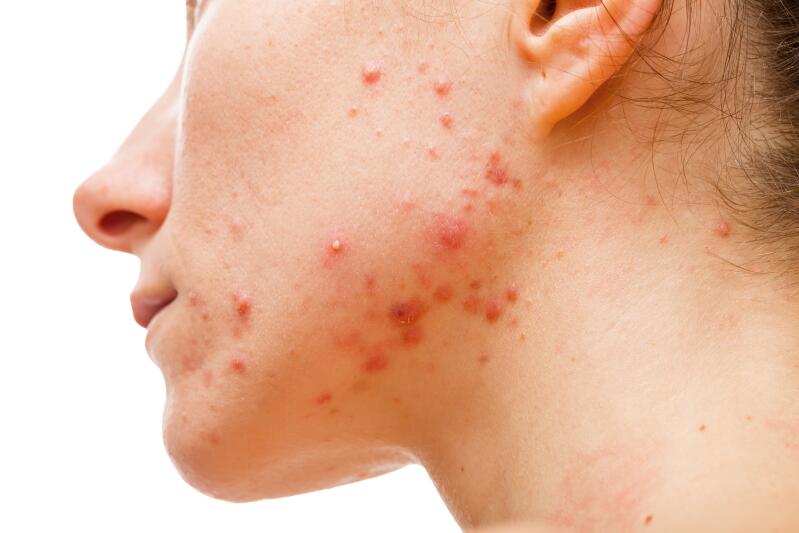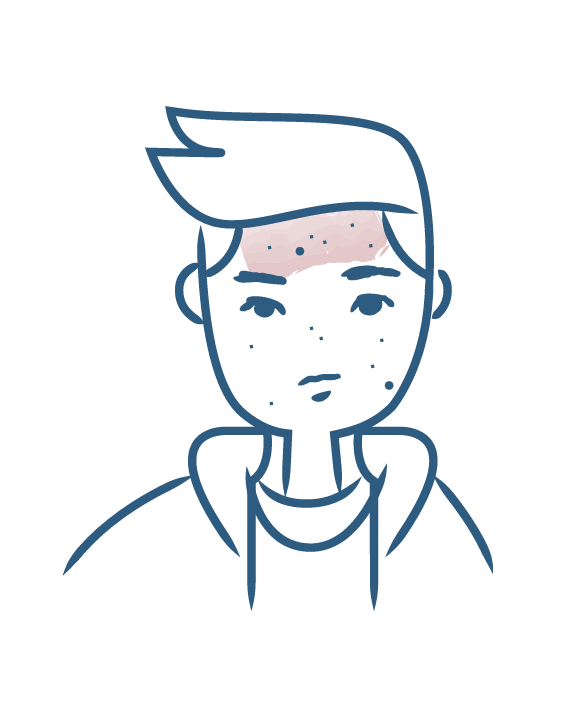-
Your concerns
Our articles to help you gain a better understanding
-
Our solutions
-
Ducray Dermatological laboratories
Our articles to help you gain a better understanding

Acne is a skin disease that is dependent on male sex hormones called androgens, the best known of which is testosterone. At puberty, androgen levels increase in boys and girls, resulting in sebum overproduction and the appearance of acne spots. After puberty, hormone levels become more stable in men but continue to fluctuate in women.
Since acne is dependent on androgens it is always, at least in part, of hormonal origin. However, the term "hormonal acne" refers more precisely to acne in adult women, in connection with hormonal changes in the menstrual cycle. We don't talk about hormonal acne in men because men don't experience monthly hormonal changes!
Many women suffer from hormonal acne and notice the appearance of acne before their period or spots during their period. For many women, pre-menstrual spots do better than any calendar and are a sign that their cycle is about to start again. Such hormonal acne spots are mainly caused by progesterone, which mostly occurs in the second half of the cycle and stimulates the production of sebum, and also by testosterone, mostly at the end of the cycle when female hormones are at their lowest. Spots are concentrated on the lower part of the face. Some women get spots on their necks because of hormones.
Before deciding on a diagnosis of hormonal acne, it is important to first eliminate all possible causes of acne in adults: unsuitable cosmetics, medication, working environment, etc.
In all cases, hygiene and care must be adapted to acneic skin, based on non-comedogenic cosmetics. Unfortunately, conventional acne treatments do not work or have only a limited impact on hormonal acne. In some cases, the adaptation of contraception and the use of a less androgenic pill can improve the appearance of the skin.
Many people are convinced that there is a connection between diet and hormonal acne. Beyond beliefs and while waiting for further studies on hormonal acne, you must ensure you have a healthy lifestyle: a balanced diet, physical activity, stress management, etc.
A hormone test is proposed when acne is accompanied by other signs such as hair loss, hyperpilosity, weight gain, irregular cycles, fertility problems, etc. The test should enable the doctor to see if there is a hormonal imbalance linked to acne and other symptoms.
Oily or acne-prone skin

Oily or acne-prone skin
NEWSLETTER
Dermatological expertise
To better understand your skin and hair, discover our exclusive content and innovative care products designed to improve your quality of life..